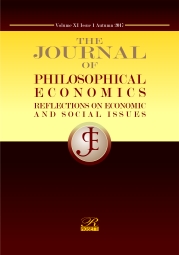Crises, confidence, and animal spirits: exploring subjectivity in the dualism of Descartes and Keynes
Crises, confidence, and animal spirits: exploring subjectivity in the dualism of Descartes and Keynes
Author(s): Sonya Marie ScottSubject(s): Philosophy, Social Sciences, Economy
Published by: Editura Rosetti International
Keywords: animal spirits; economic rationality; dualism; long-term expectation; epistemological subjectivity
Summary/Abstract: This paper will explore the nuanced epistemological status of the economic subject in Keynes’ work, alongside the physiology of the human subject in Descartes’ Passions of the Soul and Treatise on Man. In both instances ‘animal spirits’ serve as an indicator of dualism within the subject. In Descartes, the spirits mediate between the soul and the body, between the rational and non-rational, by their effect on the pineal gland. In Keynes, animal spirits push up against a certain form of economic rationality and represent a non-rational impulse inherent to human nature that is often opposed to economic reason. While Keynes’ conception of economic subjectivity extends well beyond the rationalism of many of his predecessors, the dualism presented in his work by means of the animal spirits is worth considering in philosophical terms. Ultimately this paper will conclude that Keynes’ work contains an element of what Gilbert Ryle (1949) has termed the ‘intellectualist legend,’ that is, the philosophical assumption that we must think first, and then act, relegating spontaneous action to the realm of the ‘animal’ or the ‘non-rational.
Journal: Journal of Philosophical Economics
- Issue Year: XI/2018
- Issue No: 2
- Page Range: 1-28
- Page Count: 28
- Language: English

